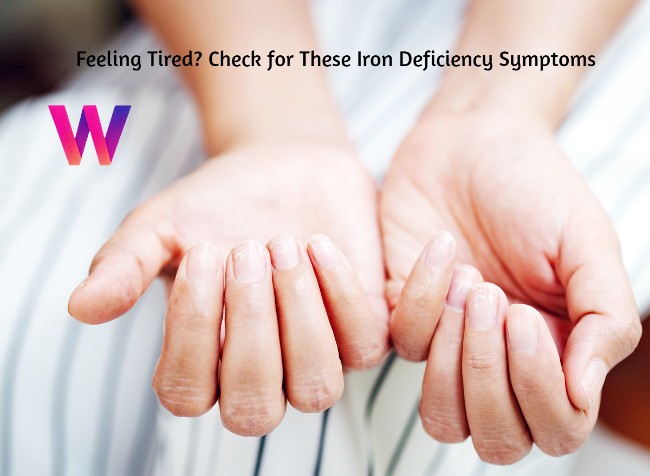Feeling tired all the time can be a sign of many different health issues, but one common cause is iron deficiency anemia. This condition occurs when there is not enough iron in the body to produce hemoglobin, a protein in red blood cells that carries oxygen to the body’s tissues. When there is not enough hemoglobin, the body does not get enough oxygen, and this can lead to feelings of fatigue and exhaustion.
Iron deficiency anemia is a very common condition, affecting millions of people all over the world. Women, especially during menstruation and pregnancy, are at a higher risk of developing this condition, as are people with a poor diet or those who have had gastrointestinal surgery.
If you are feeling tired all the time, it is important to pay attention to your body and to be aware of the symptoms of iron deficiency anemia. Here are some of the most common symptoms to look out for:
- Fatigue and weakness: This is the most common symptom of iron deficiency anemia. When your body does not get enough oxygen, it can make you feel tired and weak. This can be especially noticeable during physical activity, such as exercise or carrying heavy items.
- Shortness of breath: When the body does not have enough oxygen, it can lead to shortness of breath. This can be especially noticeable when you are doing physical activity, such as climbing stairs or doing household chores.
- Pale skin: Anemia can cause paleness in the skin, especially around the eyes, cheeks, and lips. This is because there is not enough hemoglobin in the blood to provide oxygen to the skin.
- Rapid heartbeat: When the body does not get enough oxygen, it can lead to an increased heart rate. This is the body’s way of trying to pump more oxygen-rich blood to the tissues.
- Headaches: Iron deficiency anemia can cause headaches, especially if the anemia is severe. This is because the lack of oxygen in the body can lead to headaches.
- Cold hands and feet: Iron deficiency anemia can cause poor circulation, which can lead to cold hands and feet. This is because there is not enough oxygen-rich blood flowing to the extremities.
- Dizziness or lightheadedness: Anemia can cause dizziness or lightheadedness, especially when standing up from a sitting or lying down position. This is because there is not enough oxygen in the blood to supply the brain.
- Brittle nails: Brittle nails can be a sign of iron deficiency anemia. This is because the lack of iron in the body can make the nails weak and prone to breaking.
- Spoon-shaped nails: Spoon-shaped nails can also be a sign of iron deficiency anemia. This occurs when the nails become concave, or scooped out, and may appear pale or dull.
- Cravings for non-food items: People with iron deficiency anemia may experience cravings for non-food items, such as ice or dirt. This is known as pica, and it is a common symptom of anemia.
If you are experiencing any of these symptoms, it is important to talk to your doctor. Your doctor can perform a simple blood test to determine if you have iron deficiency anemia, and can recommend the best course of treatment for you.
Treatment for iron deficiency anemia typically involves increasing your iron intake, either through your diet or with iron supplements. Eating iron-rich foods, such as red meat, poultry, fish, beans, and leafy greens, can help to increase your iron levels. Iron supplements, in the form of pills or liquid, can also be prescribed by a doctor if needed. In severe cases of iron deficiency anemia, intravenous iron may be given to quickly increase iron levels.
In addition to increasing your iron intake, it is important to address any underlying causes of iron deficiency anemia. This may include treating underlying medical conditions, such as ulcerative colitis or celiac disease, that can lead to malabsorption of iron. If you have heavy menstrual bleeding, your doctor may recommend a referral to a gynecologist for evaluation and treatment.
It is also important to keep in mind that iron supplements can interact with certain medications, such as antacids and calcium supplements, so it is important to talk to your doctor before starting any iron supplements. In conclusion, feeling tired all the time can be a sign of many different health issues, but iron deficiency anemia is a common cause. If you are experiencing symptoms such as fatigue, pale skin, rapid heartbeat, or dizziness, it is important to talk to your doctor. With the right treatment and lifestyle changes, you can get back to feeling energized and refreshed.
